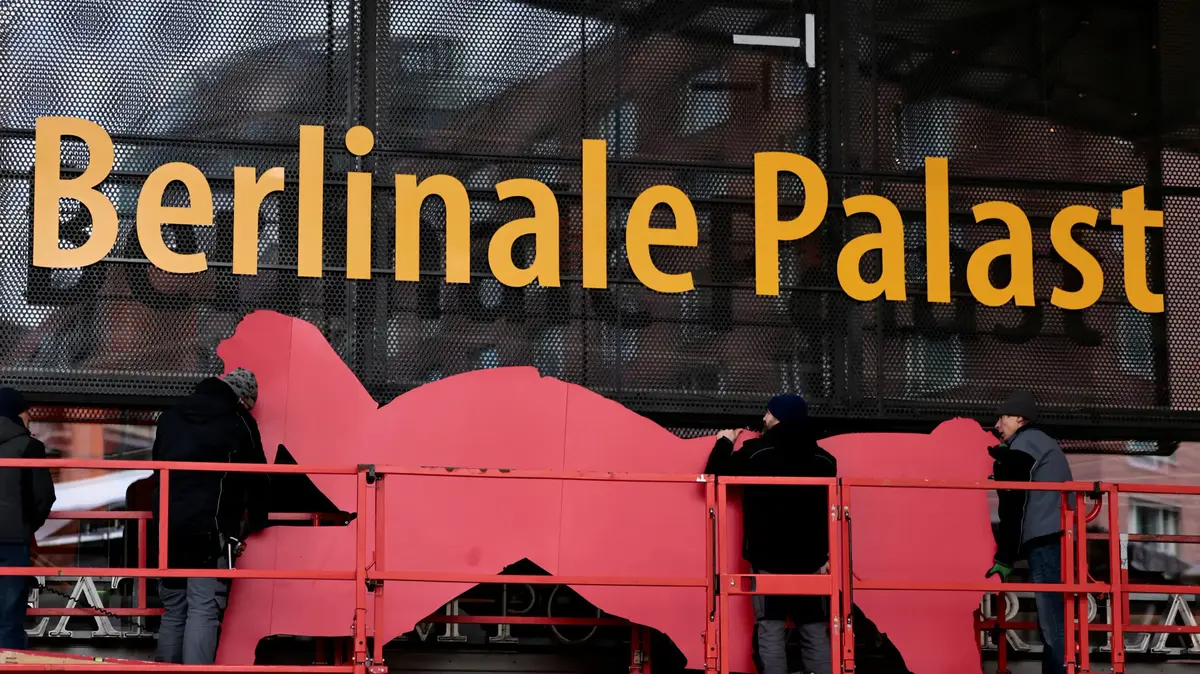Tegernsee - During a Nepal evening as part of the 18th International Mountain Film Festival in Tegernsee, other impressions from the holiday country were shown.
Visitors to the Nepal evening on the occasion of the 18th International Mountain Film Festival in Tegernsee were able to experience an extraordinary film contribution in the sold out Ludwig-Thoma-Saal.
"Our film is celebrating its premiere here today and at the same time in the Czech Republic," reported the Nepalese Sharada Gaire, producer of the film, and filmmaker Ganesh Panday with pride.
The 35-minute film entitled “Co-Husband” had previously been presented to the Nepalese parliament for the first time - a one-off operation.
Strange-looking life form polyandry
The reason: never in the 300-year history of the Himalayas has a film been made about the strange-looking way of life of polyandry, which is actually not legal in Nepal, but tolerated due to tradition.
Documented is the so-called power of women who are married to three brothers at the same time, with the somewhat different family living under one roof with the children who have emerged.
The filmmaker's research, who accompanied three families in everyday life, took three years.
Background of this way of life, which of course is not free of conflict?
Due to the lack of land, polyandry limits the number of offspring.
Up until 30 years ago, every rural Nepalese woman gave birth to up to eleven children.
Nepalese woman enjoys her special status
Therefore, several men, that is, brothers, entered into a relationship with a woman whose capacity is naturally limited biologically.
A Nepalese woman in the film visibly enjoyed her special status, because she also takes care of the division of labor for her three husbands.
No wonder that in the end there were many questions from the audience, which the film producers answered openly and with great patience.
Mountains of rubbish in a natural paradise
"Trekking on Mount Everest - mountains of rubbish in a natural paradise" was the title of Lisa Seemann's German production.
The 44-minute strip not only describes the great nature on the classic route from Lukla to the Everest base camp with ascent of Kala Patthar up to 5,643 meters, but also deals with hardships at great heights.
But the focus was on the Swede Tommy Gestatson, who reported on new approaches in the fight against garbage.
Plastic bottles are a huge problem.
Tourists should drink a lot at high altitudes in order not to get sick with heights - around 40 bottles per tour and tourist.
That makes about two million a year, which then end up on the trash.
Bring-me-back bags for garbage
The Nepalese government has made many attempts to get rid of the bottles, mainly by burning them - to the chagrin of nature.
"Tourism was a blessing for the people who live here, but of course it also has disadvantages, and garbage is one of them," said Tommy Gustafsson, who has lived in Namche Bazar at 3,400 meters for several years.
Together with the local garbage organization, the Swede has tried a new project that is well received by tourists.
“This is the bag we call the bring-me-back bag.
It contains 20 shredded plastic water bottles that were not burned but shredded into small flakes, packed in a one-kilo bag, ”explains the Swede.
More than 5,000 bags from natural paradise
On a voluntary basis, every tourist is asked to take a sack to the airfield in Lukla, where the collected sacks are then flown to the capital Kathmandu and recycled there. “I hope that in ten years you won't see any of the 75 garbage dumps here,” hoped a tourist who spends more time in the Everest region. So far, more than 5,000 bags have been carried out of the natural paradise on foot - that's around five tons of rubbish. Gustafsson calculates: "If every tourist and guide takes a single bag with them, around 80 tons of plastic could be brought out of the Everest region every year." The brilliant idea was also very well received by the Tegernsee audience.
Between the two very different film contributions, BR presenter Florian Schwarz interviewed Bad Wiessee-based founder of the Sir Edmund Hillary Foundation Germany, Ingrid Versen, who reported on the various private aid projects in the Everest region that affected the hard and barren life make the Sherpas more bearable.
iv









